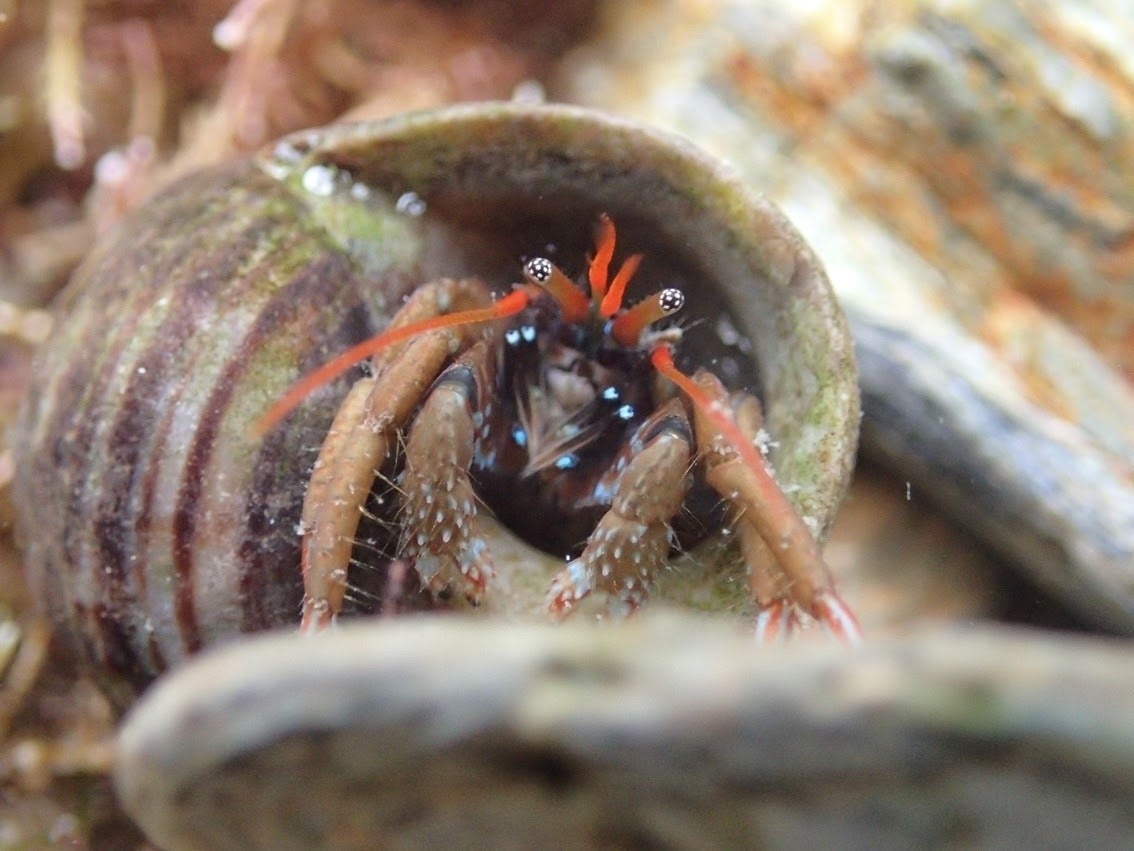Rockpool species will struggle to migrate to UK waters as sea temperatures rise
Ecologists fear there will be nothing to replace native creatures pushed to extinction by climate change.

Your support helps us to tell the story
From reproductive rights to climate change to Big Tech, The Independent is on the ground when the story is developing. Whether it's investigating the financials of Elon Musk's pro-Trump PAC or producing our latest documentary, 'The A Word', which shines a light on the American women fighting for reproductive rights, we know how important it is to parse out the facts from the messaging.
At such a critical moment in US history, we need reporters on the ground. Your donation allows us to keep sending journalists to speak to both sides of the story.
The Independent is trusted by Americans across the entire political spectrum. And unlike many other quality news outlets, we choose not to lock Americans out of our reporting and analysis with paywalls. We believe quality journalism should be available to everyone, paid for by those who can afford it.
Your support makes all the difference.The Channel forms a protective barrier that prevents rockpool species reaching England from Europe researchers say, potentially signalling future problems for biodiversity in our coastal waters.
Ecologists from the University of Exeter found the conditions that would allow rockpool wildlife to survive the crossing occur only about once every decade.
While invasive species are not usually welcomed, the researchers fear that there will be nothing to replace native creatures pushed to extinction by climate change.
The study focused specifically on the tiny crab clibanarius erythropus.
Usually found in the Mediterranean, the Black Sea and eastern Atlantic it was spotted in the UK in 2016 in Cornwall, having not been seen since the 1980s.
It was first seen on our shores in the 1960s, but was wiped out locally two decades later by an oil spill.
The BBC’s Springwatch show ran a competition to give the species a common name, with viewer’s choosing “St Piran’s crab” after Cornwall’s patron saint.
While the crab likely crossed from northern France, very few species will be able to follow it, the researchers found.
Christophe Patterson, of the Centre for Ecology and Conservation on Exeter’s Penryn Campus in Cornwall, said the crab is thought to have made the Channel crossing just twice in 50 years.
“The crab larvae almost certainly came from Brittany in northern France,” he said.
“We modelled how ocean currents could carry larvae from Brittany to the south-west UK, and we found very few opportunities for this to happen.
“Only once in every 10 years would the currents be suitable for the tiny St Piran’s crab larvae to cross the Channel.”
He continued: “Even on these currents, the time it takes for larvae to be carried to the UK is much longer than most other species’ larvae can survive.
“Crabs and other crustaceans have the best chance, as many have larvae that could survive the crossing, but other groups like sea snails, sponges and seaweed just don’t live for long enough in open water to get here.”
The sea temperature of the south-west of the UK has fluctuated over the past 60 years.
During warmer times, species that live in colder waters begin to disappear, but can recover when temperatures fall, the researchers said.
Despite a slight drop in recent years, average temperatures are expected to increase in the long term as the effects of climate change take hold.
Dr Regan Early, also of the University of Exeter, said: “Our research suggests that, as species die out, they will not be replaced by warmer-water species moving northwards, and the richness of intertidal wildlife in the UK will decrease.
“Rockpool animals are not alone in this quest. As the world warms, many species will find themselves living in environments that are too hot for them to survive.
“To avoid extinction, species must move to new areas, keeping them within their preferred climate.
“However, physical barriers like the English Channel may prevent species from doing this.”
The paper, The range expansion of clibanarius erythropus to the UK suggests that other range-shifting intertidal species may not follow, is published in the journal Marine Biology.